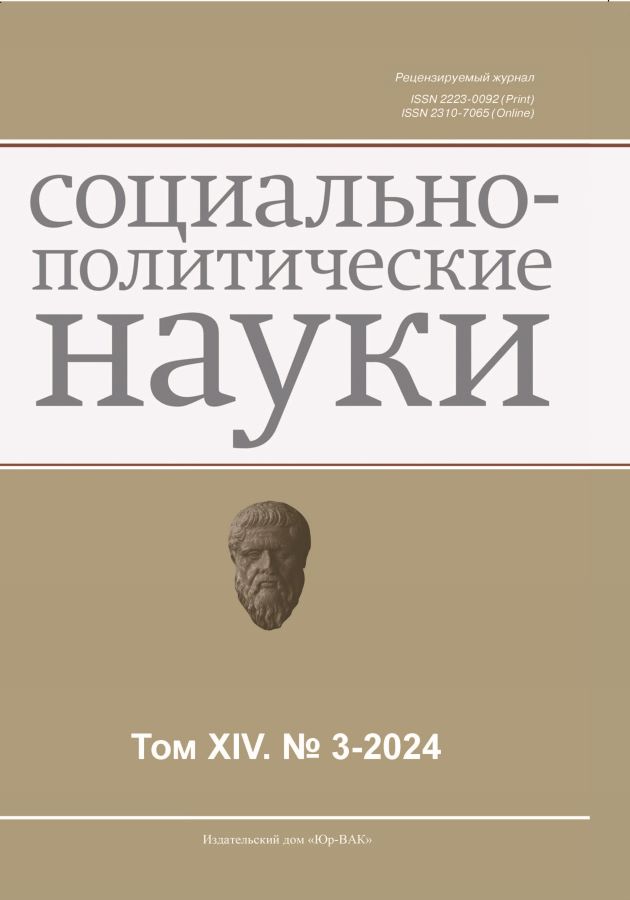Ideological aspects of Russia’s foreign policy in Southeast Asia
- 作者: Burdeyny V.V.1
-
隶属关系:
- Western branch of the Russian Presidential Academy of National Economy and Public Administration
- 期: 卷 14, 编号 3 (2024)
- 页面: 65-70
- 栏目: Political identity of Russia in the modern world
- URL: https://journals.eco-vector.com/2223-0092/article/view/635469
- DOI: https://doi.org/10.33693/2223-0092-2024-14-3-65-70
- EDN: https://elibrary.ru/IQOJNG
- ID: 635469
如何引用文章
详细
After the collapse of the Soviet Union, foreign policy relations with the countries of Southeast Asia entered a state of crisis, which affected economic, political and cultural ties. The repeated visits of representatives of the Russian leadership are an indicator of the attention that the Russian leadership pays to issues of development and cooperation with the countries of the region. Since the creation of independent states in Southeast Asia, the ideological basis of the emerging cooperation, conventionally called at that time “the export of socialism”, has been important. The article attempts to consider the historical prerequisites that determined the nature of domestic foreign policy in Southeast Asia from the perspective of ideological aspects of foreign policy. Among the main ideological aspects of foreign policy today, the most relevant are ensuring multipolarity, mutual respect for sovereignty and observance of the basic principles of security of international cooperation, ensured by mutual initiatives aimed at reducing armaments, expanding demilitarization zones, and integrating the economies of the countries of the Southeast Asian region into the world. The author concludes that the modern content of cooperation based on mutual respect, the progressive development of cooperation in all areas, and strategic interaction will allow relations with the countries of the region to develop steadily in the future.
全文:
作者简介
Vladislav Burdeyny
Western branch of the Russian Presidential Academy of National Economy and Public Administration
编辑信件的主要联系方式.
Email: vladislav_burdeiniy@mail.ru
ORCID iD: 0000-0002-4296-4698
Cand. Sci. (Philos.); associate professor, Department of Humanities and Natural Sciences
俄罗斯联邦, Kaliningrad参考
- Blagodatskikh V.G., Kerimov A.A. The concept of paradiplomacy in political science discourse: The essence and main directions of research. Sociopolitical Sciences. 2017. No. 6. Pp. 31–36. (In Rus.)
- Zarina L.L. British imperialism in China. (1896–1901). Moscow: Nauka, 1970. 248 p.
- Semigin G.Y. Ideology. In: New philosophical encyclopedia. In 4 vols. V.S. Stepin (prev. scientific ed. council). 2nd ed., rev. and add. Moscow: Thought, 2010. 2816 p.
- Zhang Y., Kerimov A.A. “Soft power” in relations between China and Russia: Directions and mechanisms of implementation. Izvestiya Irkutsk State University. Series: Political Science. Religious Studies. 2024. Vol. 47. Pp. 100–110. (In Rus.)
- Echols J.M., Shadily H. Kamus Indonesia Inggris: An Indonesian-English Dictionary. 3 ed. Jakarta: PT Gramedia, 1992. 618 p.
补充文件








